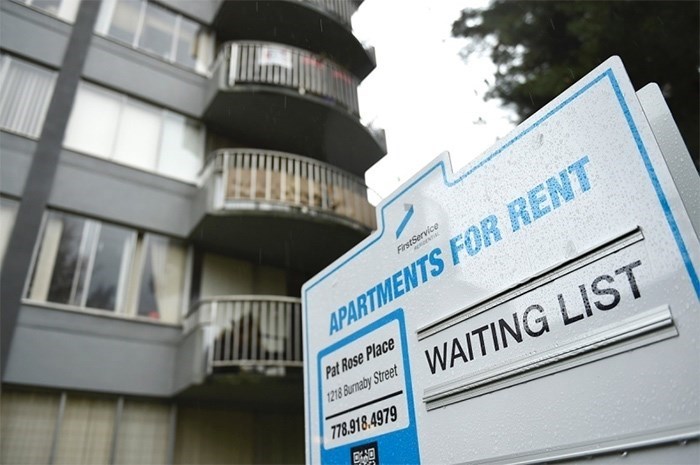Heard an interesting fact about renters at a recent council meeting.
It was either Dan Garrison or Edna Cho from the planning department who said 75 per cent of people now choosing to live in Vancouver are renters.
Which I guess is not surprising, given the insane cost to buy a home.
Vancouver, as many of you know, already has a renter population of more than 50 per cent. And if the 75 per cent figure continues to hold true for years to come — which all signs are that it will — then renters will far outweigh homeowners.
Unless, of course, some miracle happens and the market collapses and a person or a couple with an average income can buy a place for a reasonable price and put an end to everyone talking about real estate.
Optimism, I know, is not reality.
Low vacancy rate
As we will hear May 18, when the Broadway Plan goes before council, city staff knows full well the extent of the housing crisis and has big plans for more rental homes in the corridor over the next 30 years.
Which is a good thing considering the chronically low vacancy rate.
Some recent social media threads about people advertising a rental suite and getting hundreds of applications are evidence of renters’ struggle in the city and across the province.
The mayor’s media guy even wrote one, which you can read here.
How much is rent these days, anyway?
A report that went before council recently on a rezoning at Broadway and Granville indicated a one-bedroom apartment in a newer West Side building was going for $1,975 per month.
Income required to rent at that price was estimated at $79,000 per year.
A two-bedroom: $2,804 per month, with $112,160 income required.
Renter services centre
But what if you can’t afford that? Or you can’t find a place?
Or maybe you found a place but are having problems with a landlord, or need some temporary financial assistance to help you pay the rent — is there a centre in Vancouver where you can go and get one-stop service for all your questions and needs?
The answer is no.
The current council wants to do something about that.
In fact, way back in June 2019, council asked city staff to get to work on setting up a renter services centre, with an aim to bring nonprofit housing experts, a city team and representation from the provincial government together under one roof.
This way, a renter wouldn’t have to go see, for example, the Tenant Resource and Advisory Centre, and then head down to the Rent Bank before travelling to a provincial government office for assistance.
“The goal of the [renter services centre] would be to improve access to legal advocacy, support services and education for renters in Vancouver,” according to an April 25 memo to council authored by Sandra Singh, the general manager of arts, culture and community services.
900 Howe St.
So what’s happening with the centre?
In short, the pandemic has slowed the progress of making it a reality.
Yet, a site at 900 Howe St. has been identified, feedback has been received from renters and renter-advocate agencies, workshops have been conducted and calculations have been done on cost.
And it is cost, like most projects, that is an issue.
The city has made it clear that it can’t open the centre without financial help from nonprofits, the provincial government or other contributors, possibly from foundations.
So far, the city has contributed $1.46 million (via the Empty Homes Tax revenue) to support development of the centre.
The city is also considering providing a grant for rent (worth $133,000 per year) to the lead operator of the centre, whoever that may be. Two nonprofits have indicated they could afford to pay $55,000 to $80,000 per year in operating costs.
But agencies interested in part-time space indicated they don’t currently have enough money to pay for what would essentially be satellite offices to their primary offices.
The result is a funding gap of $410,000 to $440,000 per year.
“As a lower level of government with limited resources and many pressures, the city cannot fund a service like this alone,” Singh wrote. “Funding support from senior government or nonprofit foundations would be required to enable the [centre] to operate.”
Added Singh: “Lessons learned from interviews with existing co-located spaces recognizes that service hubs typically rely on grant contributions and donations that support capital infrastructure and ongoing operations, so the need for additional funders is not unexpected or unusual."
Council will hear more about the centre at its July 5 meeting.
@Howellings





